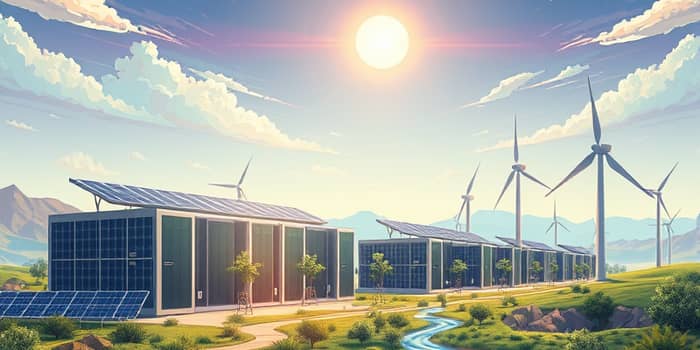
The global energy landscape is undergoing a profound transformation as energy storage emerges as a cornerstone of the transition to cleaner, more reliable power. Investors, from private equity firms to public market participants, are flocking to this burgeoning sector, driving a wave of innovation and expansion across multiple markets.
With record deployments and financing volumes, the momentum behind storage technologies has never been stronger, reshaping power systems and investment portfolios alike.
In Q1 2025 alone, the U.S. added more than 2 GW of energy storage across all segments—the highest first quarter on record. The utility-scale segment contributed over 1.5 GW, a 57% increase from Q1 2024, underscoring the rapid pace of deployment.
Globally, the off-grid energy storage market is projected to grow at an 11.1% CAGR through 2031, fueled by rising demand for reliable power, renewable adoption, and supportive policy frameworks.
The financial landscape for storage has evolved dramatically. Through the first three quarters of 2024, there were 83 completed energy storage investment deals totaling $17.6 billion. Notably, 18 of those were M&A transactions—up from 11 a year earlier.
This transition reflects a growing market maturity and technology acceptance, as stakeholders gain confidence in battery costs, performance, and project bankability.
Several forces are converging to drive growth in the energy storage sector:
Renewables like solar and wind are expected to supply over one-third of global power in 2025, making grid-scale storage essential for reliability and smoothing out fluctuations in generation.
These figures highlight a sector scaling at unprecedented speed and scope, positioning storage as a pivotal resource in modern energy systems.
Traditional leaders like Texas and California continue to dominate, but emerging markets are staking their claim. Indiana, for example, added 256 MW of new storage in Q1 2025—quadrupling its operational capacity and ranking fifth nationwide in the interconnection queue.
Residential deployments also shattered records, with 458 MW commissioned in Q1 2025, driven by consumer desire for backup power and resilience in regions prone to outages.
Publicly traded companies such as Ameren, CMS Energy, Bloom Energy, and Stem Inc. have seen their valuations buoyed by storage deals and project pipelines. Meanwhile, private equity funds and M&A investors are scouring the market for next-generation technologies.
This diversification of investor profiles—from venture capitalists to bondholders—signals that energy storage is no longer a nascent niche but a mainstream asset class.
Despite the optimistic trajectory, the sector faces headwinds. Policy uncertainty and regulatory risk remain key concerns for developers and financiers.
Moreover, the market is still somewhat fragmented, with myriad chemistries, form factors, and business models competing for scale. Continued technology innovation and cost reduction will be critical to sustaining momentum.
Yet the broader trend is clear: as global investment in low-carbon energy surpasses the trillion-dollar mark annually, storage stands at the forefront, offering both economic and environmental returns.
‘The energy storage market is responding to help keep the lights on and support this unprecedented growth in an affordable and reliable way.’ —John Hensley, ACP SVP of Markets and Policy Analysis
‘Energy storage was the second most deployed resource in Q1 2025, demonstrating its unique ability to be quickly built to address critical reliability needs.’ —Noah Roberts, ACP Vice President of Energy Storage
As the world accelerates toward decarbonization goals, energy storage remains the vanguard of the energy transition, inviting investors to power a cleaner, more resilient future.
References













